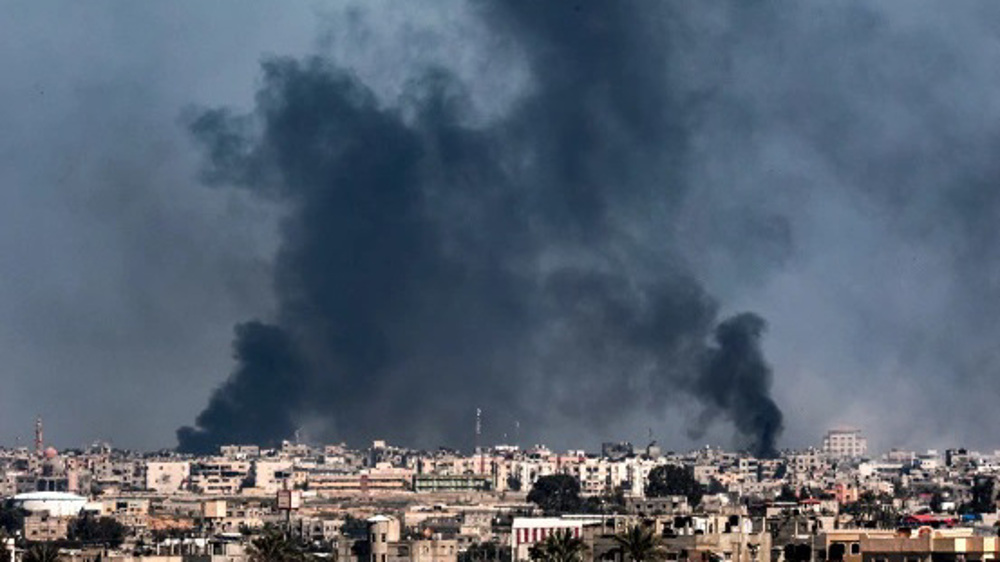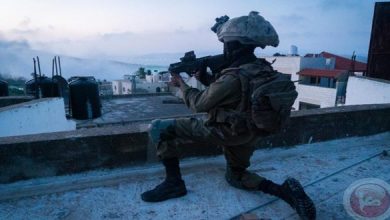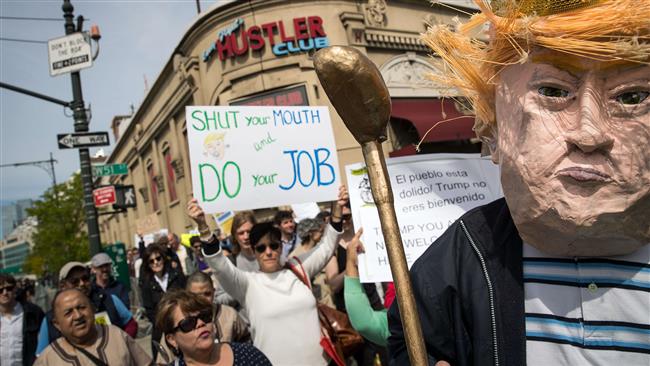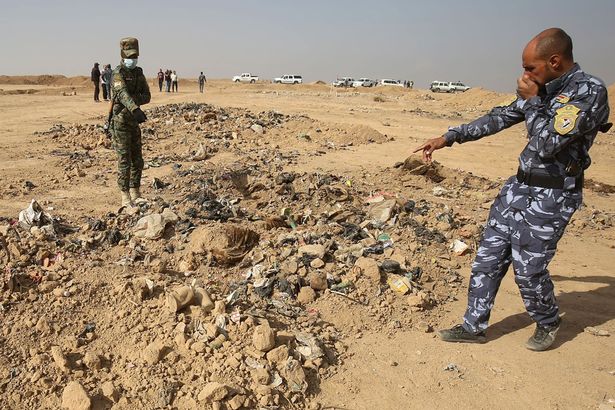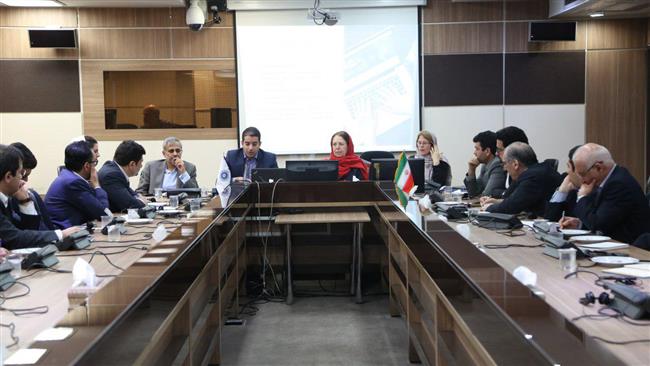International concerns mounting over potential Israeli ground invasion of Rafah
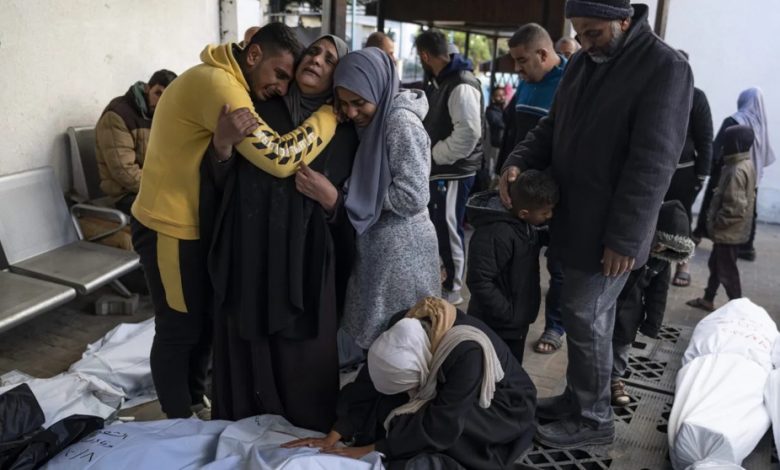
International concerns are growing as Israel’s ground invasion of Rafah is looming large, with world leaders expressing grave concerns over the military operation against the densely populated area in the far south of Gaza.
Scores of people, including children, were killed on Monday as extremely intense Israeli airstrikes and shelling pounded locations in Rafah, where a million Palestinian refugees have more than doubled the local population after being driven from the rest of the besieged territory by Israel’s military offensive.
The International Criminal Court’s chief prosecutor Karim Khan said in a social media post on Monday that he was “deeply concerned by the reported bombardment and potential ground incursion by Israeli forces in Rafah.”
Khan warned that Israeli is on notice for Rafah strikes and that his office is “actively investigating any crimes allegedly committed” in the war and those “in breach of the law will be held accountable.”
“All wars have rules and the laws applicable to armed conflict cannot be interpreted so as to render them hollow or devoid of meaning,” he wrote.
The ICC chief criticized Israel for not changing its conduct in Gaza, warning that “those who do not comply with the law should not complain later when my office takes action pursuant to its mandate.”
Volker Türk, the UN human rights chief in remarks made in Geneva on Monday said such an operation in Rafah “risks further atrocity crimes” and urged the world “not allow this to happen.”
“Those with influence must restrain rather than enable. There must be an immediate ceasefire,” he said.
United Nations relief chief Martin Griffiths together with Türk called on Israel to abort its “terrifying” planned incursion into Rafah. They warned that such an operation would likely result in scores of civilian casualties.
On Monday, Médecins Sans Frontières (MSF) also warned that “Israel’s declared ground offensive on Rafah would be catastrophic and must not proceed.”
Meanwhile, Canadian Foreign Minister Melanie Joly expressed concern over the “devastating” consequences of such an offensive, calling on the Israeli regime to refrain from launching the ground invasion as the Palestinians there have nowhere else to seek refuge.
“I’m very concerned about what’s going on in Gaza, in particular in Rafah. The operation would be devastating and is devastating to Palestinians and all those seeking refuge,” Joly told reporters.
“What [Israeli prime minister Benjamin] Netanyahu … is asking them to do, which is to leave again, is unacceptable. Because they have nowhere to go and so that’s why we need right now for the violence to stop,” she said, reiterating Canadian calls for a sustainable ceasefire.
Caroline Gennez, the Belgian Minister of Development Cooperation and Urban Policy, also said ahead of an EU informal meeting of development ministers in Brussels the situation in Rafah is “very, very dangerous” and called on continued support for the million Gazans stuck at the border area.
“We live in the most dire humanitarian crisis in ages, 1.2 million people are stuck at the border with Rafah. The situation is very, very dangerous,” she said.
Rafah has come to host more than 1.4 million Palestinians, who have fled there from the ravages of the Israeli military onslaught in other parts of Gaza.
On Friday, Netanyahu called for the evacuation of civilians from Rafah ahead of a planned ground operation against the city.
The EU says Israel
On Monday, the EU’s foreign policy Chief Josep Borrell criticized Netanyahu for turning a deaf ear to all international demands on him to protect civilians in Gaza while addressing a press conference after a meeting of the bloc’s development aid ministers in Brussels on Monday.
“They are going to evacuate – where? To the moon? Where are they going to evacuate these people?” Borrell asked.
He also called on Israel’s allies to cut arms supplies to the regime if they want to lessen the immense civilian casualties that its genocidal war against the Gaza Strip is causing.
Speaking to reporters in Ireland on Monday, the Irish Minister for Foreign Affairs and Minister for Defence Micheál Martin said he is in “no doubt” that the continued bombing of Rafah will “constitute a war crime.”
“To bomb and to mount a military operation in such a confined area, with so many people, is absolutely inhumane, unacceptable, and the international community must do everything it possibly can to put the pressure on Israel not to proceed with this invasion,” Martin said.
Stéphane Dujarric, spokesman for the UN Secretary-General Antonio Guterres, said The United Nations “will not be a party” to any forced displacement of Palestinians currently living in Rafah.
“You can’t send people back to areas that are littered with unexploded ordnance, not to mention a lack of shelter,” the UN spokesman said, referring to parts of the northern and central Gaza Strip.
British Foreign Secretary David Cameron has also called on the Israeli regime to “stop and think seriously” before taking further action in Rafah.
Cameron said many of the people in Rafah had already fled from other areas and said it is “impossible to see how you can fight a war amongst these people, there is nowhere for them to go.”
Israeli Ambassador to Ireland Dana Erlich, however, has said the military operation in Rafah is “necessary” to continue the release of captives held by Hamas in Gaza and “eliminate” the resistance group.
Since the start of the war, the Tel Aviv regime has killed at least 28,300 Palestinians, the majority of whom are civilians, and injured more than 68,000 others.
Thousands more are also missing and presumed dead under the rubble in Gaza, which is under “complete siege” by Israel.
